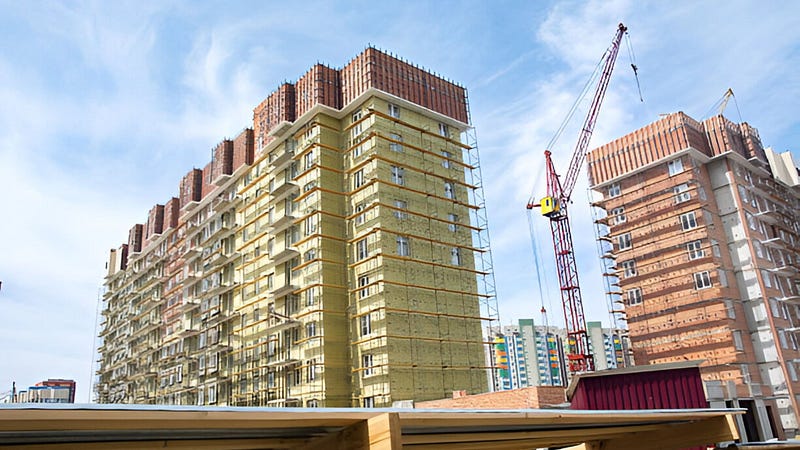
Introduction
In the fast-paced construction industry, time is a critical factor. Projects need to be completed on schedule without compromising on quality or safety. One of the most important components that influence the speed of construction is formwork — the temporary or permanent molds used to support concrete structures while they set. Efficient formwork solutions can dramatically accelerate construction timelines, reduce costs, and improve the quality of the final structure.
In this blog, we will explore some of the top efficient formwork solutions that are transforming the way construction projects are executed.

1. Aluminium Formwork Systems
Aluminium formwork systems are widely recognized as one of the most efficient formwork solutions, particularly for high-rise buildings and repetitive construction projects. The system uses lightweight, durable aluminium panels that can be assembled and disassembled quickly.
Key Benefits:
- Lightweight: Aluminium formwork is significantly lighter than traditional materials like timber and steel, making it easier to handle and reducing labor fatigue.
- Reusability: Aluminium formwork panels can be reused up to 250 to 300 times, providing excellent value over the long term.
- Precision: The panels create smooth, high-quality concrete surfaces, reducing the need for post-construction treatments like plastering.
- Speed: The modular nature of the system allows for faster assembly and disassembly, which directly reduces construction timelines.
Best for:
Aluminium formwork is ideal for mass housing projects, high-rise towers, and any construction projects where speed and consistency are critical.
2. Modular Formwork
Modular formwork systems use pre-engineered components that fit together seamlessly, allowing for easy setup and breakdown. These systems are highly flexible, meaning they can be adapted to various shapes and sizes, making them suitable for a wide range of projects.
Key Benefits:
- Time-efficient: The pre-fabricated nature of modular formwork significantly reduces setup time, helping to keep projects on schedule.
- Versatility: Modular systems can be customized to fit the specific needs of different construction projects, making them highly adaptable.
- Cost-effective: Modular formwork can be reused many times, which reduces the overall cost of formwork over the life of a project.
- Precision: These systems ensure uniformity and accuracy in construction, reducing errors and the need for rework.
Best for:
Modular formwork systems are ideal for complex architectural designs, infrastructure projects, and repetitive structures like residential complexes.
3. Plastic Formwork
Plastic formwork is another innovative solution that has gained popularity in recent years due to its lightweight, durable, and reusable properties. Plastic formwork is typically used in small to medium-sized projects, but its versatility allows it to be adapted for a wide range of construction needs.
Key Benefits:
- Lightweight: Plastic formwork is extremely easy to transport and handle, making it ideal for small teams or projects with limited manpower.
- Durability: Despite being lightweight, plastic formwork is incredibly durable and can withstand multiple reuses.
- Waterproof and Corrosion-resistant: Plastic formwork is resistant to water, chemicals, and corrosion, making it ideal for use in wet or corrosive environments.
- Eco-friendly: Since plastic formwork can be reused many times, it reduces the need for disposable materials, making it a more environmentally friendly option.
Best for:
Plastic formwork is well-suited for residential projects, infrastructure projects, and environments where exposure to moisture or chemicals is a concern.
4. Tunnel Formwork
Tunnel formwork is a highly efficient formwork system that allows for the simultaneous casting of walls and slabs. This method is especially useful in large projects with repetitive layouts, such as residential complexes, hotels, and high-rise buildings.
Key Benefits:
- Speed: Tunnel formwork enables contractors to cast both the walls and slabs in a single operation, drastically reducing the time required for each floor.
- Labor efficiency: Tunnel formwork systems often come with mechanical assistance, reducing the need for large crews.
- Uniformity: Tunnel formwork systems offer high levels of accuracy and uniformity, which helps maintain consistent quality across multiple floors or buildings.
- Cost-effective: While the initial investment in tunnel formwork may be high, the speed and efficiency it offers can lead to substantial savings over the course of a large project.
Best for:
Tunnel formwork is particularly effective in large residential projects, hotels, and office buildings where the layout is repetitive and speed is essential.
5. Climbing Formwork (Self-Climbing Systems)
Climbing formwork, especially self-climbing systems, is an efficient solution for high-rise and tall structures like towers and skyscrapers. These systems can be hydraulically lifted to higher levels without needing a crane, which saves time and resources.
Key Benefits:
- Continuous construction: Self-climbing formwork allows for continuous work on tall structures, reducing downtime between concrete pours.
- Labor-saving: Because the formwork system lifts itself, less manpower is required to move materials between floors.
- Safety: Climbing formwork systems are designed with built-in platforms and safety features, reducing the risk of accidents at great heights.
- Precision: These systems maintain consistent alignment, ensuring accuracy in the construction of tall structures.
Best for:
Climbing formwork is ideal for skyscrapers, towers, and bridges, particularly when speed and safety are critical concerns.
Conclusion: Faster Construction with Efficient Formwork Solutions
In the modern construction industry, where speed and efficiency are paramount, choosing the right formwork system can make all the difference. By adopting efficient formwork solutions, builders can significantly reduce construction times, improve precision, and cut costs, all while maintaining the highest standards of safety and quality.
Summary of Top Efficient Formwork Solutions:
- Aluminium Formwork: Lightweight, reusable, and ideal for large-scale projects.
- Modular Formwork: Pre-engineered components that allow for quick setup and flexibility.
- Plastic Formwork: Lightweight, corrosion-resistant, and suitable for smaller projects.
- Tunnel Formwork: Allows for the simultaneous casting of walls and slabs, ideal for repetitive layouts.
- Climbing Formwork: Self-lifting systems that are perfect for high-rise buildings and tall structures.
By integrating these efficient formwork systems into construction projects, contractors can meet tight deadlines, reduce labor costs, and improve the overall quality of their work.







